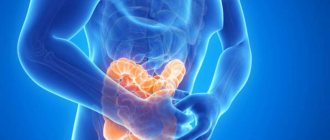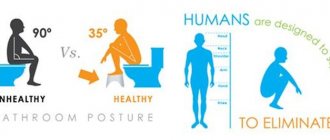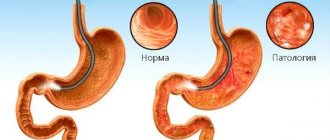Semi-finished products and sausages
The first place in the list of products that lead to intestinal problems is occupied by sausages and semi-finished products in the form of meat, fish, cereals and combined products. Before they go on sale, they undergo various types of treatments, during which they lose their benefits.
As a rule, processed foods and sausages contain a lot of fat, spices and nitrates (salt). These substances together lead to digestive problems.
Salt retains water in tissue cells. Liquid enters the intestines in small quantities. Fecal masses are formed dry and lumpy, their movement to the distal parts of the gastrointestinal tract becomes problematic.
Excess fat in foods in combination with spices causes inflammatory processes in the intestines and increases the risk of developing cancer.
The list of prohibited foods for people who often suffer from constipation includes store-bought dumplings, minced meat, fish cuts, fillets, sausages, sausages, etc.
Alcohol
Some types of alcoholic drinks can sometimes cause loose stools, for example, live beer, homemade red wine, etc. But the opposite problem is often observed - constipation due to the abuse of alcohol-containing products.
Alcohol in large quantities and with frequent use causes severe dehydration. Lack of moisture makes stool dense and leads to difficulty defecating.

At the initial stage, a person may not see the relationship between alcohol consumption and digestive problems such as stool retention, increased gas formation, and abdominal pain. However, alcoholic drinks negatively affect the entire body, in particular the intestines.
Alcohol provokes inflammatory processes in the gastrointestinal tract, kills beneficial microflora, which inevitably leads to dysbacteriosis.
Against the background of frequent consumption of alcoholic beverages, irritable bowel syndrome (IBS), gastritis, pancreatitis and other gastrointestinal problems develop, which are accompanied by constipation.
Treatment with folk remedies
Constipation is a very serious problem. However, laxatives are not always found in your home medicine cabinet. What to do? Traditional healers offer their own solutions to this problem.
Few people know that elderberry jelly and a decoction of senna leaves enhance intestinal motility. To relieve spasms and facilitate the process of defecation, a regular infusion of valerian is useful. To normalize stool, you can prepare a product based on dried fruits and honey with the addition of senna leaves. It should be taken in the morning on an empty stomach, one tablespoon. Every day, traditional healers recommend starting with a glass of warm water, because the liquid stimulates the urge to defecate.
Laxatives today can be purchased at every pharmacy; a prescription from a doctor is not required. However, such therapy gives only a temporary effect; it does not solve the problem itself. Constipation is a serious disorder of the digestive system. You should not ignore its first symptoms; it is better to immediately consult a specialist. It is necessary to treat the underlying cause of the disease, and this requires a lot of time and effort. Sometimes you even have to change your lifestyle.
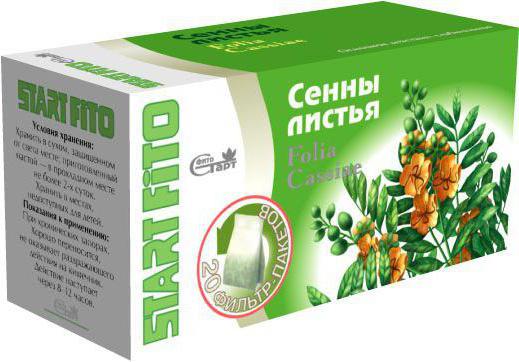
Red meats
Food of animal origin is difficult to digest; it takes up to 12 hours to break it down in the body. Types of meat that can cause constipation include:
- pork;
- mutton;
- beef;
- duck.
Pork and lamb contain large amounts of animal fat. Regular consumption of such meat without a sufficient amount of vegetables often leads to constipation and putrefactive processes in the intestines.
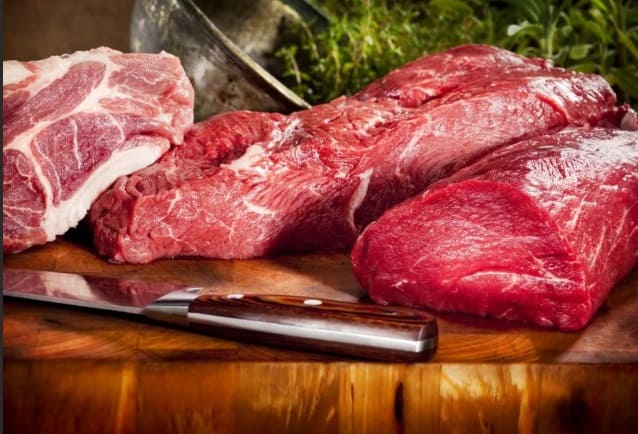
Fried pork in the form of beefsteaks, steaks, etc. is especially harmful to the digestive tract. Such products contain many carcinogens that poison the body as a whole and cause dysbacteriosis.
In addition, industrial pork contains antibiotics that contribute to disruption of the intestinal microbiota and the development of constipation.
Beef and duck have a strengthening effect on the intestines, due to the large amount of animal fibers that are difficult to digest.
Another reason why cow meat can cause constipation is that it contains a lot of iron.
People suffering from constipation should not abuse the listed meat products. It is better to completely exclude them from the diet and replace them with dietary meats, which include chicken and turkey. If you are constipated, you can also eat horse meat, as it is easily digestible and digested by the gastrointestinal tract.
Examination methods
First of all, the survey determines whether constipation is acute (sudden) or chronic. In case of acute onset of constipation, a possible connection with medications is investigated. Next, an obstruction of an organic nature is diagnosed.
Instrumental diagnostics for acute constipation include plain radiography of the abdominal cavity in an upright position, sigmoidoscopy, examination of the colon with a barium enema and colonoscopy.
Mandatory examination methods for all patients with constipation without exception include stool analysis for occult blood, examination of the internal anal sphincter with a finger, sigmoidoscopy and colonoscopy or polypositional irrigoscopy with double contrast.
To determine in more detail the degree of motor dysfunction, intestinal transit time is examined. This is done using various markers.
Disorders of the neuromuscular coordination of defecation, resulting from impaired fecal output, are detected using anal manometry.
Wheat products
Pasta, baked goods made from premium flour (white bread, buns, pies, etc.), semolina are food products rich in gluten. The substance is a protein gluten. It irritates the intestinal walls, causing increased gas formation, cramps, reduces the absorption of nutrients and disrupts digestion. The above products cause constipation if consumed frequently. In moderation, they do not harm the intestines.
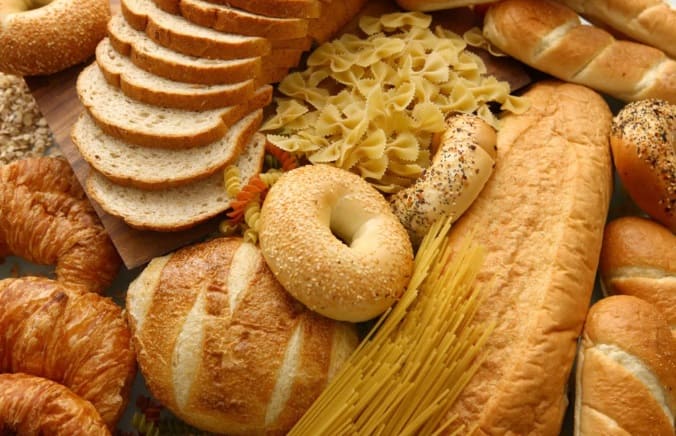
Baked goods made with white flour not only contain gluten. When preparing baked goods, margarine is used, which contains refractory fats that are dangerous to the intestines and the body as a whole. Together with gluten, they slow down the digestion process and lead to persistent constipation.
Sweets
Foods containing large amounts of refined sugar are food for pathogenic intestinal bacteria.

Abuse of sweets in the form of candies and milk chocolate inevitably leads to the development of dysbacteriosis and inflammatory processes in the digestive tract. An imbalance of intestinal microflora often causes constipation.
White rice
White rice deservedly appears on the list of foods that cause constipation. During its processing, the germinal parts of the grain and scales, which are rich in fiber, are removed. Essentially processed food is empty carbohydrates with a high calorie content.
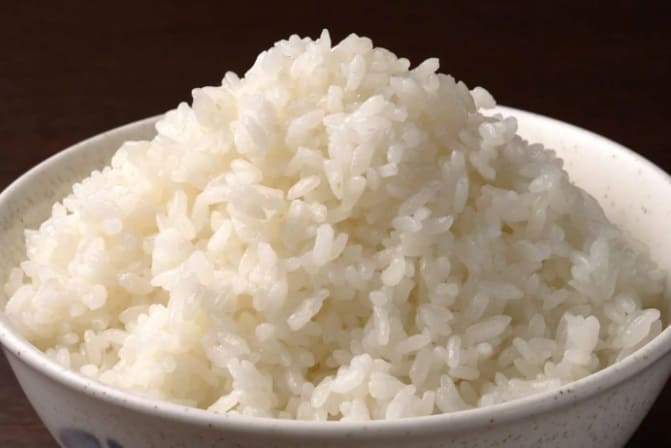
Connoisseurs of this grain crop who have problems with stool are better off eating brown rice.
Urgent help for children
In principle, a child’s body is no different from an adult’s, except that in terms of dosage you need to be more careful. There is no need to pour spoonfuls of oil into your child - he will have liver problems. Switch to foods rich in fiber, natural dairy products, bananas, kefir, prune compote - everything will return to normal. Newborns need a tummy massage, dill water can also help. Laxatives and suppositories should be given to young children only as a last resort, since this can cause a strong imbalance in the young body. The younger the child, the more side effects there are. If you are breastfeeding, follow your diet and there will be much less constipation.
When constipation occurs, what should a child do urgently? It is best to use an enema. A simple little rubber enema will do wonders. If you have the aforementioned Esmarch mug, you will need an adapter for a child's butt, don't even think about inserting an adult tip into a child's anus. Children need to do the enema very smoothly and carefully, as if playing a little nightly piano serenade on the piano.
The portions of water that you will administer to your child are indicated in the table. Again, remember that you cannot exceed this norm!
| Child's age | Enema volume |
| 1-2 months | No more than 25 ml. |
| 2-6 months | 30-50 ml. |
| From 6 months to 1 year. | 100-130 ml. |
| 1-2 years. | 180-200 ml. |
| 2-5 years. | 200-300 ml. |
| Up to 10 years | No more than 400 ml. |
The principle of operation is the same as for adults. Place it on the barrel, carefully insert the end, carefully add water. Let it lie down for a few minutes and go to the potty.
Remember that in case of severe stage 2-3 constipation, as well as if the child is very small, consult a doctor before treatment!
Persimmons and bananas
It is not always only junk food that causes constipation in adults and children. Persimmon is a food rich in vitamins. However, in addition to useful substances, the fruit contains tannins, which have an astringent effect, thereby reducing peristalsis.

Green bananas have a similar effect. They also contain tannins and a lot of starch. Ripe bananas, on the contrary, help relax the intestines.
What to eat for constipation
For constipation in adults and children, it is necessary to include laxative products in the diet. They don't have to be high in fiber. For example, this applies to fermented milk drinks.
For frequent problems with bowel movements, fresh kefir, homemade yogurt with the addition of pieces of berries or fruits will help. Tea with rose hips and the addition of honey has a mild laxative effect.
Coffee and chicory are also useful drinks. But it is better to completely avoid drinking strong black tea due to the presence of tannins, which strengthen the intestines.
Proper nutrition with the exclusion of fixing foods from the diet does not always help to improve bowel movements. The problem may be associated with insufficient fluid intake, a sedentary lifestyle, or internal pathologies. To find out the cause, it is recommended to consult a gastroenterologist, who will help you create the right diet for frequent constipation.
Signs
Constipation is considered probable if there are two or more symptoms within three months:
- A person pushes more than a quarter of the time;
- In at least a quarter of cases, the stool is hard and lumpy;
- In at least a quarter of cases there is a feeling of incomplete bowel movement;
- In at least a quarter of cases the rectum appears to be blocked;
- In at least a quarter of cases, some manipulations have to be performed in order for defecation to be successful;
- A person goes to the toilet less than three times a week.


